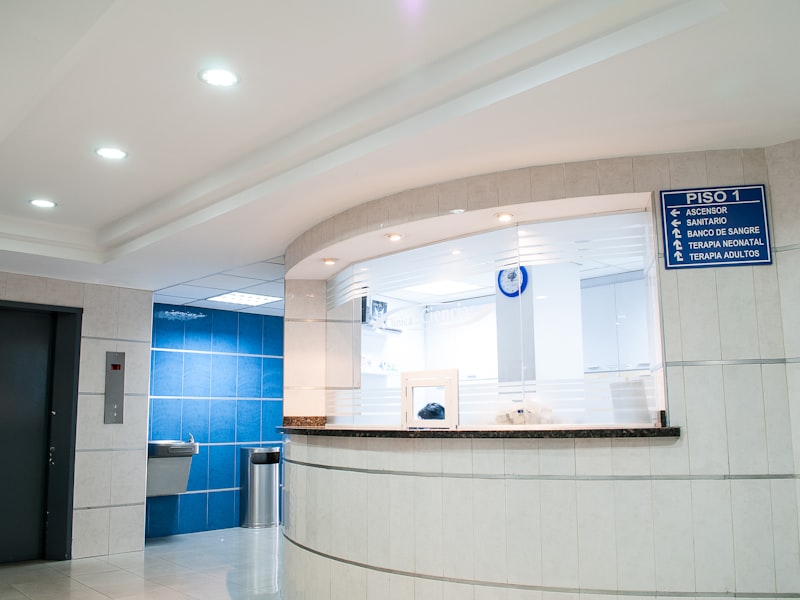One of the most frequently overlooked aspects of Dubai relocation is health insurance. Unlike employees whose employers provide coverage, business owners and entrepreneurs must arrange and pay for their own mandatory health insurance.
Make no mistake: health insurance in the UAE isn't optional—it's a legal requirement for visa issuance and renewal. Without valid insurance, you cannot complete your residency process, and if it lapses, you face fines and potential visa cancellation.
This comprehensive guide explains everything entrepreneurs need to know about Dubai health insurance: mandatory requirements, coverage tiers, costs, best providers, and strategic decisions to make for you and your family.
The Legal Framework: Mandatory Insurance Requirements
Dubai falls under the Dubai Health Authority (DHA) jurisdiction, which mandates specific minimum coverage standards:
DHA Essential Benefits Plan (Minimum Coverage)
Since 2014, all Dubai residents must have health insurance covering at least:
- Annual coverage limit: AED 150,000 minimum ($41,000)
- Inpatient care: Hospital stays, surgeries, emergency admissions
- Outpatient care: GP consultations, specialist visits
- Emergency care: Ambulance services, ER visits
- Maternity: Normal delivery coverage (C-section may require higher tier)
- Prescription medications: Essential medicines
- Preventive care: Annual health checkups, vaccinations
Important: This is the bare minimum. Most entrepreneurs opt for higher coverage levels for better hospital networks, lower co-pays, and comprehensive services.
Coverage Tiers Explained
Dubai health insurance typically falls into three categories:
1. Essential/Basic Coverage (AED 600-1,200/year)
What's Included:
- Coverage limit: AED 150,000-300,000
- Basic hospital network (limited to specific clinics and hospitals)
- High co-payments (20-30% of costs)
- Geographical restriction: Dubai only
- Long waiting periods for pre-existing conditions
- Limited or no dental/optical coverage
Best For:
Young, healthy individuals seeking minimum legal compliance, those on tight budgets, or those maintaining international health insurance separately.
2. Enhanced/Comprehensive Coverage (AED 3,000-6,000/year)
What's Included:
- Coverage limit: AED 500,000-1,000,000
- Wider hospital network (includes premium hospitals like Mediclinic, NMC, Aster)
- Lower co-payments (0-15%)
- UAE-wide coverage
- Maternity coverage (normal + C-section)
- Optical and dental (basic)
- Physiotherapy and alternative therapies
- Mental health coverage
Best For:
Most entrepreneurs and families. Excellent balance of coverage, cost, and hospital access. Recommended tier for comprehensive protection without excessive premiums.
3. Premium/Platinum Coverage (AED 8,000-20,000+/year)
What's Included:
- Coverage limit: Unlimited or AED 5,000,000+
- Full access to top-tier hospitals (American Hospital, Mediclinic Parkview, Cleveland Clinic)
- Zero or minimal co-payments
- International coverage (some plans include worldwide coverage excluding or including USA)
- Comprehensive maternity including IVF
- Extensive dental and optical
- Alternative medicine, mental health, wellness programs
- Medical evacuation and repatriation
- Private rooms, choice of specialist
Best For:
High-net-worth individuals, those with pre-existing conditions requiring premium care, families planning pregnancy, or anyone prioritizing healthcare access without financial constraints.
Top Health Insurance Providers in Dubai
Based on 600+ client experiences, here are the most reliable insurers for entrepreneurs:
1. Cigna Global
- Strengths: Excellent international coverage, fast claim processing, premium hospital network
- Plans: Comprehensive to Platinum (AED 4,000-18,000/year)
- Best for: Entrepreneurs traveling frequently internationally
2. AXA Gulf
- Strengths: Strong regional presence, competitive pricing, good customer service
- Plans: Essential to Premium (AED 900-12,000/year)
- Best for: Families seeking value-for-money comprehensive coverage
3. Daman Insurance
- Strengths: Large hospital network, established UAE presence, transparent terms
- Plans: Basic to Enhanced (AED 1,200-8,000/year)
- Best for: Those prioritizing hospital choice and UAE-wide coverage
4. Dubai Insurance Company (Oman Insurance)
- Strengths: Budget-friendly essential plans, DHA-compliant, quick enrollment
- Plans: Essential only (AED 600-1,500/year)
- Best for: Minimum compliance for healthy individuals
5. Bupa Global (Now Aetna International)
- Strengths: Worldwide coverage including USA, premium service, specialist access
- Plans: Premium to Platinum (AED 10,000-25,000+/year)
- Best for: High-net-worth individuals needing global coverage
Cost Breakdown: What You'll Actually Pay
Here's realistic annual premium pricing based on age and family structure:
| Profile | Essential | Comprehensive | Premium |
|---|---|---|---|
| Single Adult (25-35 years) | AED 800 | AED 3,500 | AED 10,000 |
| Single Adult (36-50 years) | AED 1,200 | AED 5,000 | AED 14,000 |
| Couple (both 30-40) | AED 2,000 | AED 7,500 | AED 22,000 |
| Family (2 adults + 1 child) | AED 2,800 | AED 11,000 | AED 30,000 |
| Family (2 adults + 2 children) | AED 3,600 | AED 15,000 | AED 42,000 |
| Family (2 adults + 3 children) | AED 4,400 | AED 19,000 | AED 55,000 |
Note: Prices increase with age. Adults 50+ pay 40-60% higher premiums. Children under 18 generally cost 30-40% less than adults.
Understanding Co-Payments and Exclusions
Co-Payment Structure:
Most policies require co-payments (your out-of-pocket contribution):
- Essential Plans: 20-30% co-payment on all services (you pay 20-30% of every bill)
- Comprehensive Plans: 10-15% outpatient, 0-10% inpatient
- Premium Plans: 0-5% or zero co-payment
Example: If you have a AED 10,000 surgery with 20% co-pay, you pay AED 2,000 out-of-pocket. With zero co-pay, insurance covers the full AED 10,000.
Common Exclusions (Not Covered):
- Pre-existing conditions (12-24 month waiting period)
- Cosmetic/plastic surgery (unless medically necessary)
- Experimental treatments and clinical trials
- Fertility treatments (unless premium plan)
- Dental work beyond basic (unless dental rider added)
- Vision correction surgery (LASIK)
- Sports injuries from hazardous activities
- Self-inflicted injuries
- War, terrorism-related injuries
Strategic Decisions for Entrepreneurs
1. Coverage Level Choice
My Recommendation:
Comprehensive coverage (AED 3,000-6,000/year per person) is the sweet spot for most entrepreneurs.
It provides excellent hospital access, reasonable co-pays, and peace of mind without breaking the bank. The difference between essential and comprehensive is AED 2,000-3,000/year—a small price for significantly better care quality.
2. Maternity Coverage Planning
If you're planning pregnancy:
- Purchase maternity coverage BEFORE getting pregnant (10-12 month waiting period applies)
- Ensure coverage includes both normal delivery AND C-section (some basic plans only cover normal delivery)
- Budget: Comprehensive maternity plans cost AED 5,000-8,000/year for women of childbearing age
- Delivery costs without insurance: AED 15,000-40,000 depending on hospital and complications
3. Pre-Existing Conditions Strategy
Most insurers impose 12-24 month waiting periods for pre-existing conditions. Strategies:
- Full disclosure: Always declare conditions honestly—non-disclosure can void your entire policy
- Continuity credit: If you had insurance covering that condition for 12+ months previously, some insurers waive waiting periods
- Premium plans: Some offer shorter waiting periods (6 months) or immediate coverage for higher premiums
- Budget accordingly: You'll pay out-of-pocket for pre-existing condition care during waiting period
4. Network vs. Reimbursement
Two payment models exist:
Network Coverage (Direct Billing):
Hospital bills insurer directly. You pay only co-payment. Convenient but limits you to network hospitals.
Reimbursement Model:
You pay upfront, submit claim, get reimbursed. More flexibility but requires cash flow. Reimbursement takes 7-21 days.
Recommendation: Choose network coverage with a broad network. It eliminates cash flow burden and claim hassles.
The Enrollment Process for Business Owners
Unlike employees whose employers arrange insurance, entrepreneurs must:
Step 1: Choose Provider and Plan (2-3 weeks before visa application)
- Compare quotes from 3-5 providers
- Check hospital networks (ensure your preferred hospitals are included)
- Review coverage terms, exclusions, co-payments
- Consider future needs (children, pregnancy, aging)
Step 2: Purchase Policy
- Complete medical questionnaire (pre-existing conditions disclosure)
- Pay annual premium (some allow quarterly payments with fees)
- Receive policy certificate (required for visa application)
- Turnaround: 1-3 business days
Step 3: Link to Visa Application
- Submit insurance certificate to GDRFA/ICA during visa processing
- Insurance must be active throughout visa validity
- Renewal: Must renew insurance before visa renewal (insurers send reminders)
Family Coverage Optimization
For families, strategic coverage allocation can save thousands:
Smart Family Strategy:
- Adults: Comprehensive coverage (you need it most, higher health risks)
- Children: Enhanced coverage (generally healthier, lower premiums)
- Pregnant spouse: Premium maternity coverage (critical for delivery coverage)
Example savings: Mixed-tier coverage for family of 4 costs AED 13,000/year vs. AED 19,000 if everyone has comprehensive—saving AED 6,000 annually without sacrificing essential protection.
Frequently Asked Questions
Can I use international health insurance instead of UAE insurance?
No. UAE residency requires DHA-compliant local insurance. You can maintain international insurance as supplementary coverage, but you must have UAE insurance for visa purposes.
What happens if my insurance lapses?
Your visa becomes invalid, you face fines (AED 500-1,000), and you cannot renew your visa until insurance is reinstated. Continuous coverage is mandatory.
Can I switch insurance providers mid-year?
Yes, but you'll lose any prepaid premium with the current provider. Most people switch during visa renewal. However, if service is poor or you relocate to a different emirate, switching is possible.
Do I need separate insurance for Abu Dhabi travel?
If your plan is UAE-wide, you're covered in Abu Dhabi. Basic plans may be Dubai-only—upgrade to comprehensive for full UAE coverage. Emergency care is covered everywhere regardless.
What's the best way to save on insurance premiums?
Pay annually (saves 5-10% vs. installments), maintain healthy lifestyle (some insurers offer wellness discounts), consider higher co-pay plans if you rarely use healthcare, and purchase family plans (10-15% cheaper than individual policies).
Get Expert Health Insurance Guidance
As part of my Dubai relocation service, I help entrepreneurs select optimal health insurance, connect with trusted brokers, and ensure compliance—saving you time, money, and confusion.
GET INSURANCE CONSULTATION


